content
What is tea tree oil?
Effects of tea tree oil on postpartum women
1. Hand sanitizer
2. Insect repellent
3. The effects of Cajeput oil on postpartum women: Natural deodorization
4. Antiseptic for small cuts
5. The effects of tea tree oil on postpartum women: Helps treat acne
6. Treatment of nail fungus
7. Make a mouthwash against tooth decay
8. Multi-purpose detergent
9. Soothe skin inflammation
10. The effect of tea tree oil on postpartum women is to help control dandruff
11. Remove mold on fruits and vegetables
12. Reducing psoriasis, an effect of tea tree oil on postpartum women
Is tea tree oil safe for children?
Should tea tree oil be inhaled for babies?
Tea tree oil is widely used in everyday life. This oil brings many health benefits, but what is the effect of tea tree oil on postpartum women, is it safe for children?
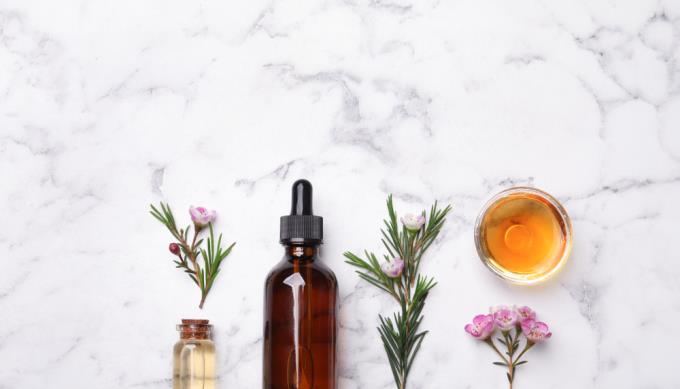
Tea tree oil (also known as tea tree oil, tea tree oil) contains active ingredients that are beneficial for health, so it has long been used by the ancients to beautify skin, hair, and nails. In addition, tea tree oil has many other interesting effects, such as warming the body, disinfecting, deodorizing ...
But besides that, this essential oil can also cause some side effects. If used incorrectly, essential oils can affect your health. Marry Baby invites you to learn about tea tree oil in this article for proper indoor use while avoiding the unfortunate side effects.
What is tea tree oil?
This essential oil is extracted from the leaves of the tea tree, a plant native to Queensland and New South Wales, Australia.
Tea tree oil has been used by Aboriginal Australians for centuries to treat coughs and colds or to be applied directly to the skin for skin healing.
Today, tea tree oil is widely sold as a 100% undiluted oil (pure tea tree oil) or concentrate, or there are diluted lines of 50% tea tree oil for skin use. .
Tea tree oil contains several compounds, including terpinen-4-ol that has been shown to kill certain bacteria and fungi.
Terpinen-4-ol can also increase the activity of white blood cells, thereby helping the body fight germs, fungi, prevent infections and speed up the healing process.
Effects of tea tree oil on postpartum women
What is the effect of tea tree oil for women after giving birth? Common effects of this essential oil include:
1. Hand sanitizer
Research shows that tea tree oil can kill some common bacteria and viruses, including E. coli, S. pneumoniae and H.enzae.
2. Insect repellent
Research shows that, after 24 hours of using tea tree oil for cows, only about 49% of flies followed these animals compared to before.
In addition, test-tube studies also found that tea tree oil had a stronger repellent ability than DEET, a common active ingredient in insect repellents.

Tea tree oil can be an insect repellent
3. The effects of Cajeput oil on postpartum women: Natural deodorization
Contaminated sweat glands will cause an unpleasant odor. Your armpits contain a large number of these glands and are mainly responsible for creating body odor.
Tea tree oil can help with this, thanks to its natural antibacterial properties.
4. Antiseptic for small cuts
When there is an open skin injury, the bacteria easily enter the bloodstream and cause an infection.
Tea tree oil can be used to disinfect and treat minor cuts or scratches. The reason is that the active ingredients in this oil can kill the S. aureus bacteria and other bacteria that can cause open wound infections.
In addition, the effect of tea tree oil on postpartum women can also stimulate the activity of white blood cells to promote wound healing.
To disinfect cuts or scratches, you can do the following:
Wash the wound with an antiseptic soap
Mix one drop of tea tree oil with one teaspoon of coconut oil
Apply the mixture to the wound, then cover it
Repeat this once or twice daily until the wound is scabbed
5. The effects of tea tree oil on postpartum women: Helps treat acne
Cajeput essential oil treats acne because it contains a number of powerful antibacterial compounds. Research has shown that the active ingredients in this oil are as effective in reducing the number and severity of acne breakouts as benzoyl peroxide.
You can use tea tree oil to treat acne by:
Mix 1 part tea tree oil with 9 parts water.
After washing your face and dry with a cotton towel, then apply this solution to the acne areas 2 times a day.
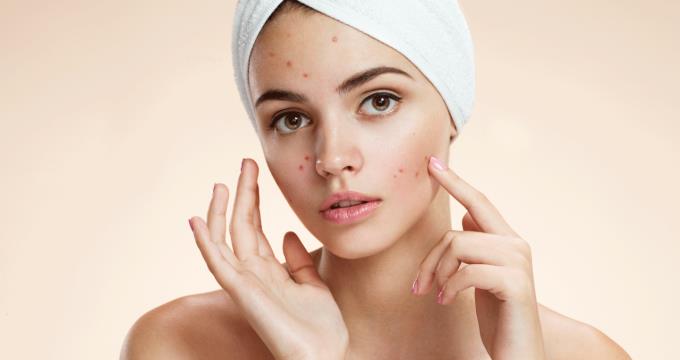
The effect of tea tree oil on postpartum women is to help treat acne
6. Treatment of nail fungus
Onychomycosis is very common, but the condition is not dangerous, but it is unsightly. Tea tree oil has been shown to kill onychomycosis by applying tea tree oil or in combination with other herbs.
You can use tea tree oil to treat nail fungus by:
Apply a few drops of tea tree oil to the fungal nail.
Or mix a few drops of tea tree oil with coconut oil and apply on the affected nail area every day.
7. Make a mouthwash against tooth decay
Research shows that tea tree oil can fight the bacteria that cause tooth decay and bad breath. Specifically, the essences in the tea plant have the ability to kill the bacteria that cause plaque more than chlorhexidine. Chlorhexidine is a common disinfectant in mouthwash .
How to make a antibacterial mouthwash from tea tree oil
Put a few drops of tea tree oil in a cup of warm water.
Stir well, then hold in mouth for 30 seconds or longer. Rinse 2 times a day in the morning and evening.
* Note: You should not swallow the solution of tea tree oil because it can be harmful to your health. After rinsing your mouth with this essential oil, you should rinse your mouth with white water again.
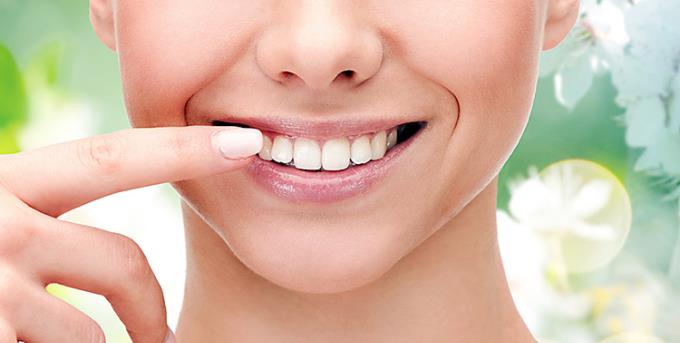
Tea tree oil for oral cleaning
8. Multi-purpose detergent
Thanks to its strong anti-bacterial and anti-mold properties, tea tree oil can be used to clean the surface of household items.
You can use it by:
Use 20 drops of tea tree oil, 3/4 cup of water, and 1/2 cup (cup) of apple cider vinegar in a spray bottle.
Shake the solution well.
Spray the solution directly onto the surface and wipe with a dry cloth.
9. Soothe skin inflammation
Contact dermatitis occurs when the skin comes in contact with an allergen such as nickel. Contact with the allergen results in red, itchy, and sometimes painful skin.
Research shows that applying tea tree oil can help reduce the severity of these symptoms.
In addition, tea tree oil can also help ease the side effects of stink mites such as itching, redness, and swelling. These symptoms occur when the body secretes histamine to fight the insect's poison.
You can soothe skin inflammation with tea tree oil as follows:
Use 10 drops of tea tree oil with 1 teaspoon of extra virgin olive oil and 1 teaspoon of coconut oil.
Mix the mixture well and store in a sealed jar.
Apply the mixture to the affected area.
10. The effect of tea tree oil on postpartum women is to help control dandruff
Dandruff is very common, especially in winter when it is cold and dry. Tea tree oil can help treat dandruff effectively without medication.
You can treat dandruff by:
Add a few drops of tea tree oil to the shampoo.
Apply on head and gently massage then rinse with clean water.
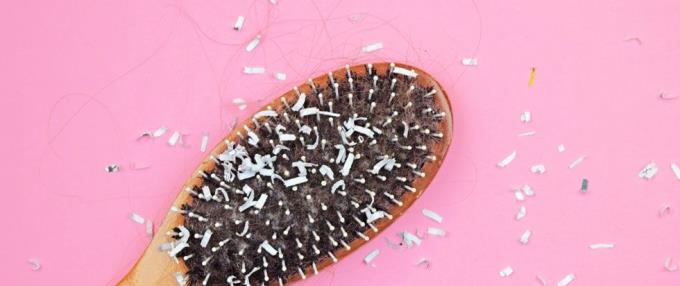
Tea tree oil to treat dandruff
11. Remove mold on fruits and vegetables
Green vegetables and fruits are susceptible to mold infections, especially the gray mold botrytis cinerea. To keep your food safe, you can use tea tree oil to get rid of this condition instead of using a toxic chemical antifungal.
Studies show that the antifungal compounds terpinen-4-ol and 1,8-cineole in tea tree oil can help reduce the growth of this mold on fruits and vegetables.
You can fight mold on fruits and vegetables as follows:
Place 5-10 drops of tea tree oil in a bowl of water
Use this water to wash fruits and vegetables
12. Reducing psoriasis, an effect of tea tree oil on postpartum women
Psoriasis is a characteristic autoimmune condition that causes red, itchy, and scaly skin. This is a chronic disease that cannot be completely cured. But there are many ways you can relieve the symptoms of illness, such as using tea tree oil.
You can treat psoriasis by:
Add 10-15 drops of tea tree oil to 2 teaspoons of melted coconut oil
Apply this solution to affected skin areas 2-3 times a day

Essential oils for babies: Which is best for babies? Essential oils for babies are derived from herbs, flowers and plants. Essential oils are popularly used to apply on the baby's skin with the effect of relaxing massage, warming the body or making aromatherapy in the room to deodorize, sedate, and help the baby sleep well. Essential oils for babies are good ...
Is tea tree oil safe for children?
Research has shown that although tea tree oil appears to be safe, it is not safe to drink or be used by children, pregnant women, and nursing women.
So when using this essential oil indoors, be aware of the following:
Not for drinking or adding to food.
Keep out of reach of CHILDREN.
The first time you use this oil, you should test a few drops on your skin to see if there is any reaction. After 24 hours, if there is no reaction, you can continue taking it.
Not for people with sensitive skin, easily irritated.
Always dilute tea tree oil with water or other oils when using it.
Do not use this essential oil directly in its pure form to feed / drink or apply to the skin.
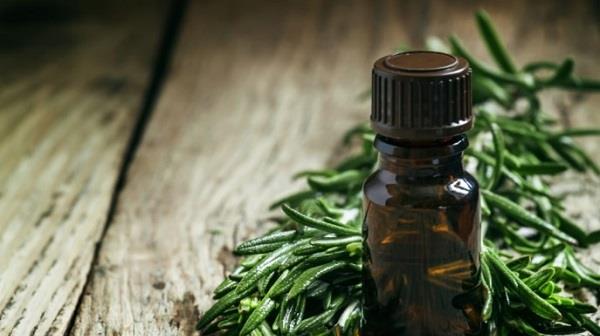
Tea tree oil is not recommended for babies
Should tea tree oil be inhaled for babies?
Infants have weak respiratory systems and skin, so these parts are very susceptible to damage when exposed to active substances such as essential oils.
Tea tree oil as well as other essential oils, contain powerful active ingredients that can irritate your baby's respiratory tract and skin. Therefore, mothers absolutely should not inhale Cajeput essential oil for babies or use it to bathe or apply on the skin.
Tea tree oil has many health benefits, but it can also be harmful if you use it incorrectly.


















